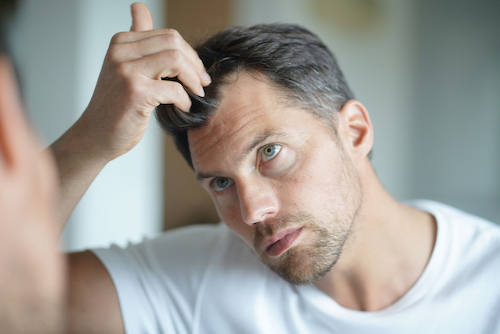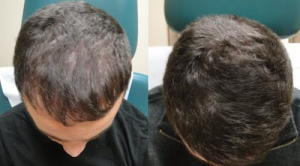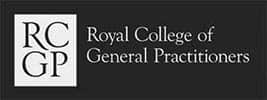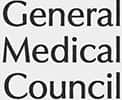
With an estimated 8 million women in the UK suffering from alopecia and two-thirds of all men, eventually affected by male pattern baldness, hair loss is common. If you’re experiencing hair loss, you may have considered seeking combative treatment, of which there are seemingly countless options. While some of these treatments are effective, others are less reliable or are associated with negative side effects, making it difficult to know which to choose.
In recent years, one hair loss treatment that’s become popular is platelet-rich plasma (PRP) therapy, which uses growth factors from your own blood to prevent hair loss and promote new hair growth. Many patients have reported positive results from this promising treatment, but does it work — and how? In this blog, we answer all your questions about PRP for hair loss so you can determine whether this treatment might be a good fit for you.
PRP therapy is a treatment that involves taking blood from a patient and using it to create platelet-rich plasma. This concentration of a patient’s platelets is then injected into specific body areas to accelerate healing. PRP therapy has several uses in healthcare, dermatology and aesthetic medicine, the most common of which are:
• Musculoskeletal injuries
• Post-surgical healing
• Osteoarthritis
• Skin rejuvenation (i.e. the “Vampire facial”)
• Hair loss.
PRP therapy may sound complex, but the process is simpler than you might think. Here’s how it works:
A medical professional draws a sample of blood from the patient’s arm. This is then placed into a centrifuge device, which rapidly spins the sample to separate it into three layers: platelet-poor plasma, platelet-rich plasma and red blood cells.
The centrifuge concentrates the platelets within the plasma, creating a platelet-rich plasma solution. Using needles, this is injected into the target area, with the aim being to increase the concentration of growth factors in this specific part of the body. Growth factors are proteins that help to accelerate the healing process. They can be used in various treatments to decrease pain, shorten healing time, stimulate collagen production or encourage hair growth.
PRP therapy is a reliable hair loss treatment that can rejuvenate thinning hair for both men and women. This is because PRP contains proteins that help your blood clot and encourage cell growth, both of which are essential functions in hair regrowth. When administered by an expert clinician, PRP hair treatment can be used to prevent hair loss and promote the growth of new hair, transforming your look and giving you greater confidence.
Although PRP as a treatment for hair loss is fairly modern, multiple studies have shown encouraging results. These have primarily focused on treating androgenetic alopecia (AGA) — also known as hormone-related baldness — which is a condition that can affect both men and women. You may also hear AGA being referred to as male pattern baldness or female pattern baldness. Below is an overview of some promising results from PRP and hair loss studies:
• A 2014 study published in the Journal of Cutaneous and Aesthetic Surgery, found that injecting two to three cubic centimetres of PRP into the scalp every two weeks for three months could increase the average number of hair follicles from 71 to 93 units — an average mean gain of 22.09 follicular units per cm². Although this study is too small to be conclusive (11 patients were involved), results showed that PRP injections may increase the number of hair follicles and that patients were delighted with the treatment.
• In a 2015 study published in the Asian Journal of Transfusion Science, 10 people were given PRP injections every two to three weeks for three months. By the end of the three months, all 10 patients had good hair growth, with more hairs, increased hair thickness and improved hair root strength.
• Another 2015 study, featured in Stem Cells Translational Medicine, reported the effectiveness of PRP on male pattern hair loss, with a randomised placebo-controlled trial conducted over two years. Twenty-three male patients enrolled in the study. Results showed a significant increase in the number of hairs in those patients injected with PRP, with the study concluding that PRP has a positive effect on male pattern hair loss without significant side effects.
• A 2019 study that appeared in the International Journal of Trichology compared the effectiveness of PRP injections and minoxidil (Rogaine) with two groups of 20 people using each type of hair loss treatment. Thirty patients completed the study, with results indicating that PRP therapy performed much better of the two treatments. However, the study also found that your level of platelets impacts how well your plasma works as a hair loss treatment, indicating that those with a lower level of platelets in their blood may not find this treatment quite as effective.
One of the main benefits of platelet-rich plasma hair treatment is that the solution used is made up of your blood cells and plasma. Unlike with other treatments, this means there’s no risk of allergy or reaction. PRP also has the benefit of minimal side effects, which is a concern with other types of hair loss treatment for many people. Medication for male pattern baldness could increase the risk of erectile dysfunction. At the same time, for women, alternative treatments such as minoxidil can cause potential side effects such as facial hair growth and low blood pressure.
PRP hair treatment is a minimally invasive and low-risk treatment requiring no pharmaceutical products or downtime, making it the preferred choice for many people experiencing hair loss.
Most patients will require a first round of treatments involving at least two to three sessions, usually four to six weeks apart. Results are typically visible within a few weeks and will appear as a natural yet noticeable change. Optimal collagen regeneration can take up to three months. Results vary between patients but can last for as long as 18 months, after which you’ll need a touch-up appointment to maintain new hair regrowth.
If you’re considering PRP hair treatment, you’re probably wondering what results may look like following the procedure. This before and after picture shows one of our male patients following treatment, who experienced a noticeable improvement in hair regrowth.

Anyone experiencing hair loss may find that PRP treatments are an effective solution for them, but patients with platelet disorders may be unsuitable for this type of treatment. You may also fail to qualify for PRP if you have a medical condition such as severe anaemia, an active scalp infection, liver dysfunction or uncontrolled diabetes.
Prices will vary depending on the qualifications and location of your chosen clinic, but it’s essential to do your research and seek out an experienced and certified practitioner. At Harley Street MD, our expert clinicians are highly trained and have a wealth of experience in cosmetic procedures, so we’d be happy to answer any questions you might have and help you find the treatment option that’s right for you. Our PRP hair treatment starts at £400 for a single session or £950 for three sessions.
If you want to tackle hair loss with PRP therapy, our qualified team of medical professionals would love to help. Book a consultation at our Central London clinic today.







